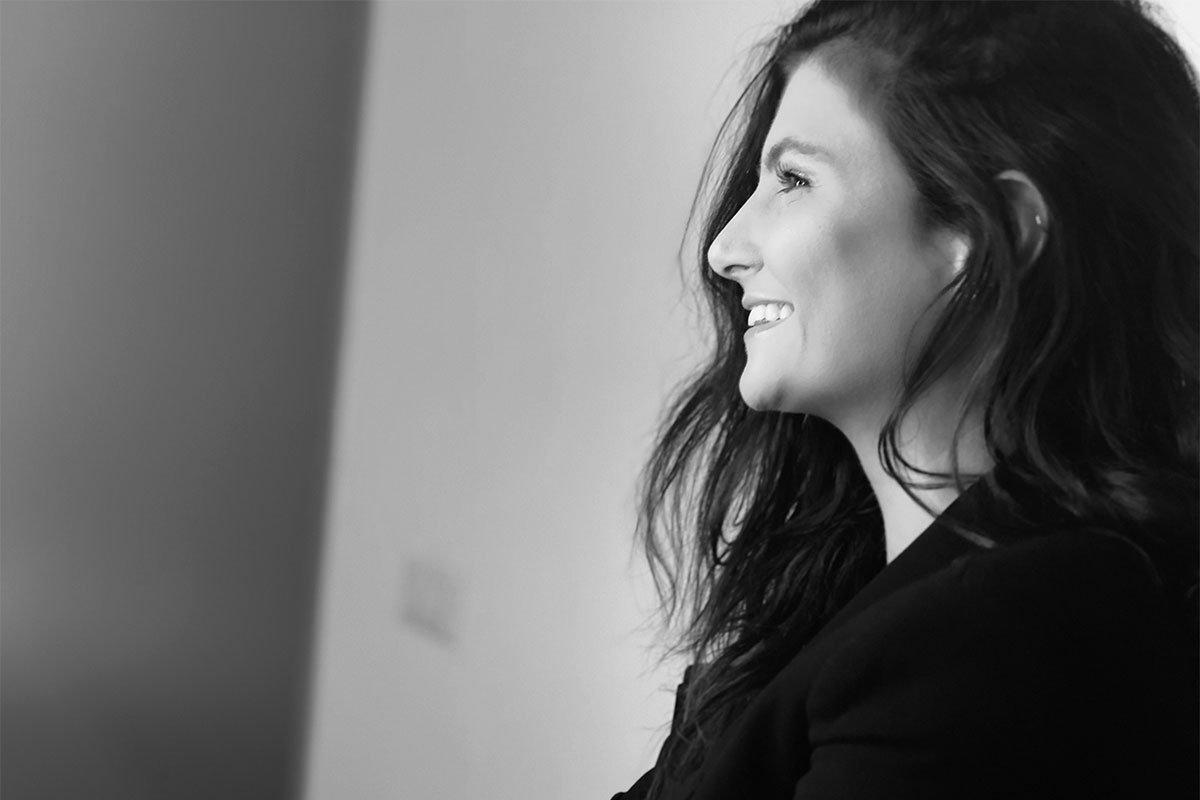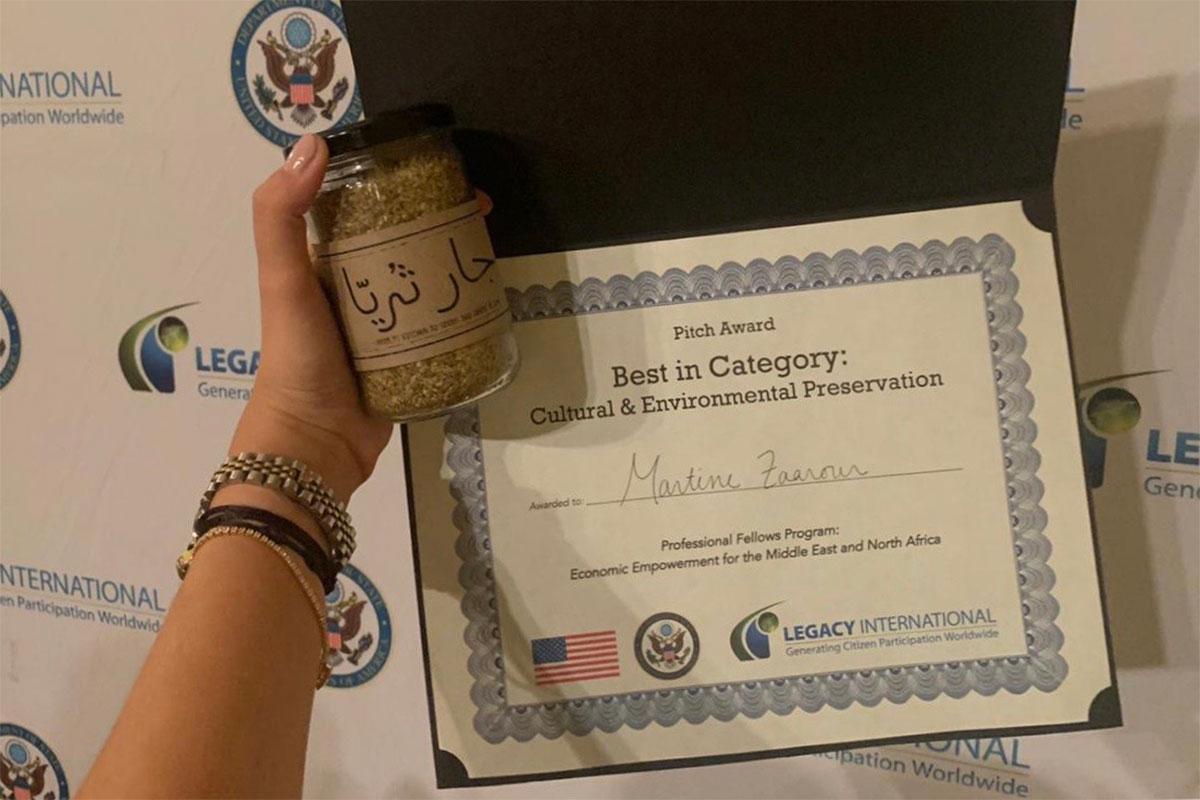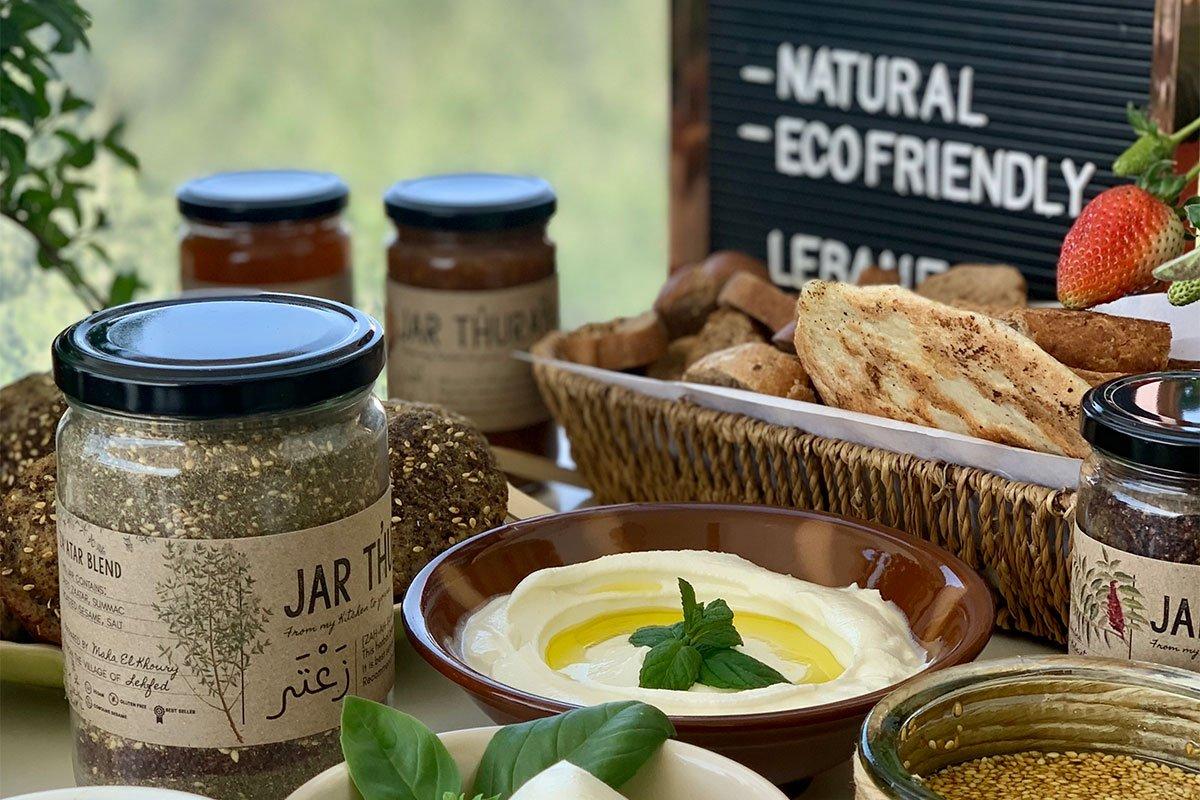Alumna Martine Zaarour Shares Love in a Jar
A remarkable journey of preserving culture, empowering women, and sharing the love for local heritage, one jar at a time.
Lebanese women are famed for being resourceful. Perhaps the very origins of preparing mouneh – the practice of food preservation – started with a group of such women, who sought to provide their families year-round with a balanced diet that included seasonal staples.
In recent years, however, younger women have admitted they lacked the skills essential to making mouneh – such as sun-drying, pickling, slow-cooking, or oil-packing traditional food, according to Martine Zaarour (BArch ’14).
“When I realized that my grandma is the only source of my larger family’s mouneh, it was a wake-up call,” said Zaarour, adding that “not even the mothers knew how to prepare it.”
In co-founding Jar Thuraya, she saw an opportunity to keep this practice alive, while throwing a lifeline to resourceful rural women, and preserving an essential part of the Lebanese cuisine.
At first glance, the endeavor seemed a departure from Zaarour’s degree in architecture, but she was quick to connect the dots. Shortly after graduating and working briefly at an architecture firm in Madrid, she returned to Lebanon and engaged in socially conscious projects that were in line with the United Nations’ Sustainable Development Goals.
With a focus on women’s economic empowerment, Zaarour developed a seed idea for a platform that helps women sell homemade food, as part of a youth leadership program run by the United Nations Development Programme (UNDP). This earned her invites to pitch her idea at the Regional Forum on Gender Equality in Tunisia, and at the UN Economic and Social Council in New York.
The international exposure and support landed her a six-week fellowship with the Professional Fellows Program (PFP) in Washington DC, funded by the US Department of State. While there, she was mentored and trained to complete the business development model for Jar Thuraya, which was selected as best in the Cultural & Environmental Preservation category at the PFP final pitch.
Zaarour returned to “a very different Lebanon” in December 2019, just as she had planned to launch her enterprise. Political, economic, and financial distress enveloped the country, as people took to the streets in protest and the local currency began its steep decline.
She was determined to kick off and found hope in her brand that promised to “empower women working from their homes, helping them generate income and become financially independent.”
Zaarour and her colleagues took part in several programs and incubators that resulted in different forms of monetary and in-kind support, while the COVID-19 pandemic forced a dramatic rise in e-commerce. “In a way, the ongoing crises had shed much-needed light on the importance of local production,” she said.
“Every jar is stamped with the name of the woman who prepared it and where she comes from,” said Zaarour, noting that the glass jars are 100 percent eco-friendly. As for engaging and appealing to the new generation, products by younger women make up Jar Thuraya’s line of fusions that are “inspired by the endless possibilities of Lebanese cuisine,” she added.
As Zaarour juggles several professional development courses in user-experience design and project management, she is grateful for the well-rounded education she gained at LAU’s School of Architecture and Design. She recalls final-year overnights at the studios, as well as exposure to international speakers and several extracurricular activities that introduced her to social issues.
“I believe that I wouldn’t be here if it weren’t for architecture and my background in design,” she concluded. “Even though my heart and career are both set on entrepreneurship and gender advocacy, I will always consider myself an architect first.”


